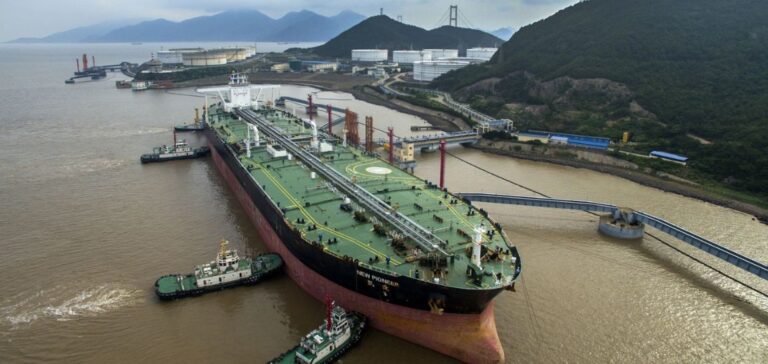China imports oil from Russia despite falling discounts and growing demand. Saudi Arabia reduces exports due to price increases and production cuts. Chinese government data for July confirms these trends.
Chinese oil imports from Russia rise despite price cuts
Chinese government data reveal that Russia maintained its position as China’s main supplier of crude oil in July. Arrivals from Russia were up 13% on the previous year. They reached 8.06 million metric tons and 1.9 million barrels per day (b/d), according to data from the General Administration of Customs. This growth is taking place despite discount cuts and rising domestic demand, which are hampering Russian exports.
Saudi exports fall due to price rises and production cuts
Shipments from Saudi Arabia, meanwhile, were down 14% on the previous year and 31% on June, reaching 5.65 million tonnes. Riyadh raised the official selling price of Arab Light, its flagship crude oil. This increase was aimed at Asian buyers and reached a six-month high. In addition, Saudi Arabia announced a further production cut in July, from 9 million b/d to 9.96 million b/d in June.
Growing domestic demand in Russia and erosion of discounts
Despite Western sanctions, Russian crude oil of ESPO quality is traded at near-standard prices. Strong demand from India and China reduces sanctions-related discounts. Russian shipments are capped, but demand remains high. ESPO shipments for July delivery were sold at a discount of $5 to $6 per barrel to the ICE Brent benchmark, compared with $8.50 in March, according to trade sources. In addition, growing domestic demand in Russia is also likely to lead to an overall decline in exports.
Supplier diversification and import growth
Faced with reduced shipments from Saudi Arabia and Russia, other suppliers have seen their shares increase. Shipments from Angola were up 27% on the previous month, reaching 574,581 b/d in July. Similarly, US exports to China quintupled year-on-year, reaching 161,275 b/d in July despite geopolitical tensions, thanks to growing production of WTI crude oil in the USA. Imports from Malaysia rose by 16% year-on-year. They reached 911,926 b/d in July. This country often acts as an intermediary for sanctioned shipments from Iran and Venezuela.






















